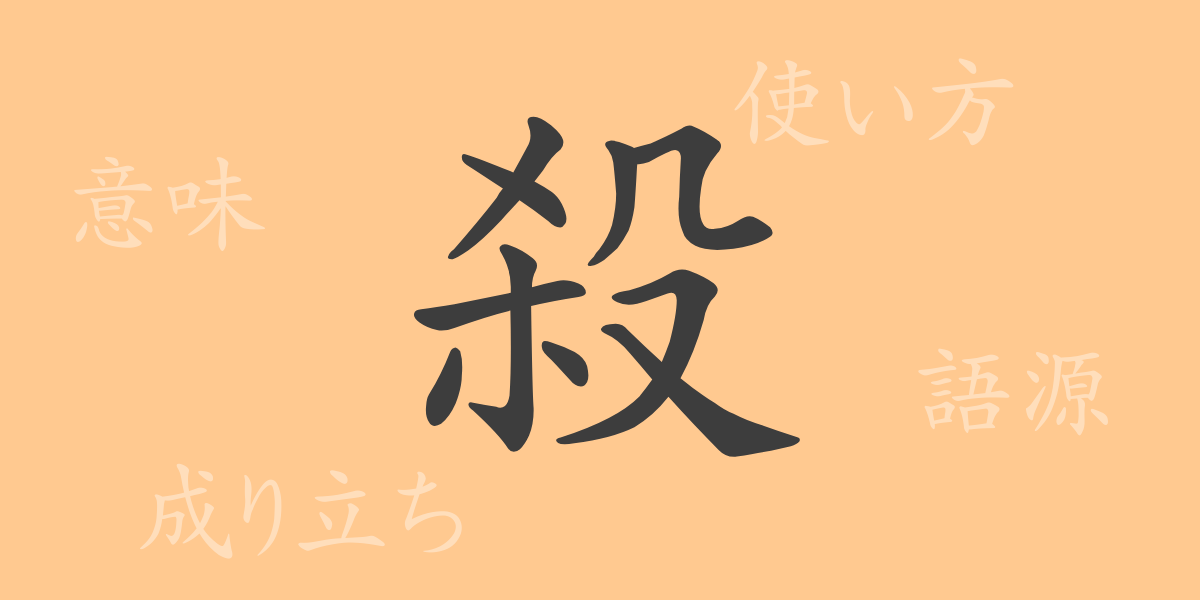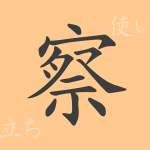Japanese contains many kanji, each with its unique history and meaning. The kanji “殺” (さつ, ころす) carries a powerful meaning and plays a significant role in the Japanese language. This article explores the origin, usage, idioms, and phrases related to “殺” (さつ, ころす) in detail.
Origin of 殺 (さつ, ころす)
The kanji “殺” (さつ, ころす) originated in ancient China. It combines the radical “歹” (がつ, gatsu), meaning “death,” and “殳” (しゅ, shu), representing strength or ability. This combination conveys the meaning “to cause death by force,” which evolved to signify “to kill.”
Meaning and Usage of 殺 (さつ, ころす)
“殺” (さつ, ころす) primarily means “to kill” or “to take a life.” However, it can also be used metaphorically or in less intense expressions. For example, reducing time significantly is expressed as “時短” (じたん, jitan), and cutting prices as “値引き” (ねびき, nebiki).
Reading, Stroke Count, and Radical of 殺 (さつ, ころす)
Here are the details about the kanji “殺” (さつ, ころす):
- Reading: The on’yomi (音読み) readings are “サツ” (satsu) and “サイ” (sai). The kun’yomi (訓読み) readings are “ころす” (korosu) and “や” (ya).
- Stroke count: 10 strokes.
- Radical: The radical is “歹” (がつ, gatsu), which is associated with death or negative meanings.
Idioms, Phrases, and Proverbs Using 殺 (さつ, ころす) and Their Meanings
Several idioms, phrases, and proverbs include the kanji “殺” (さつ, ころす). Here are a few examples:
- 一石二鳥 (いっせきにちょう, isseki nichō): Achieving two gains with one action (literally “two birds with one stone”).
- 殺風景 (さっぷけい, sappukei): A bleak, unadorned appearance.
- 手を殺す (てをころす, te wo korosu): To restrain oneself or to go easy on someone.
- 目には目を、歯には歯を (めにはめを、はにははを, me ni wa me o, ha ni wa ha o): An eye for an eye, a tooth for a tooth; taking revenge in kind.
Conclusion on 殺 (さつ, ころす)
The kanji “殺” (さつ, ころす) is used not only for its direct meaning but also in various expressions and idioms. In Japanese, “殺” (さつ, ころす) is valued for conveying strong emotions and actions, with its applications spanning a wide range. Through this article, we hope to deepen your understanding of “殺” (さつ, ころす) and enrich your appreciation of Japanese expressions.

























